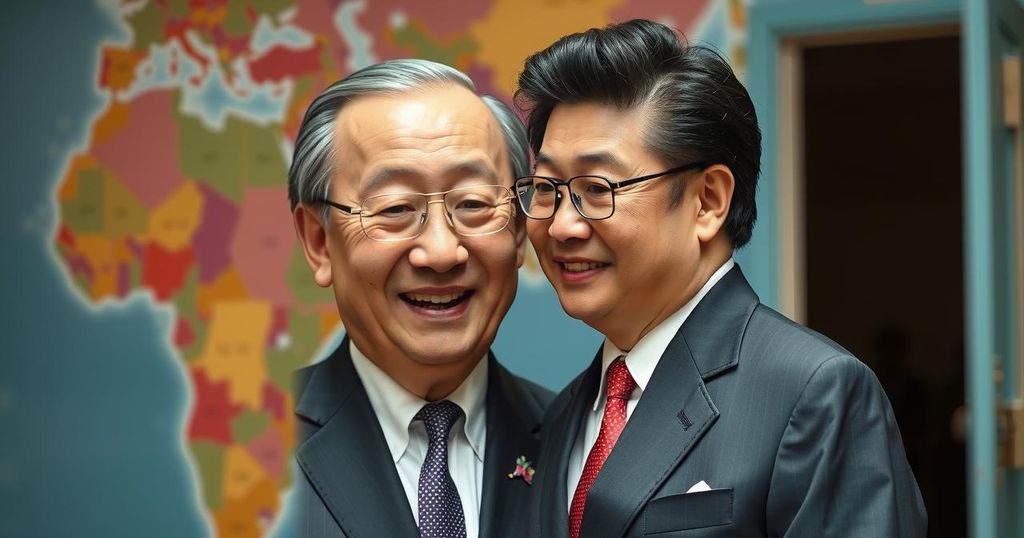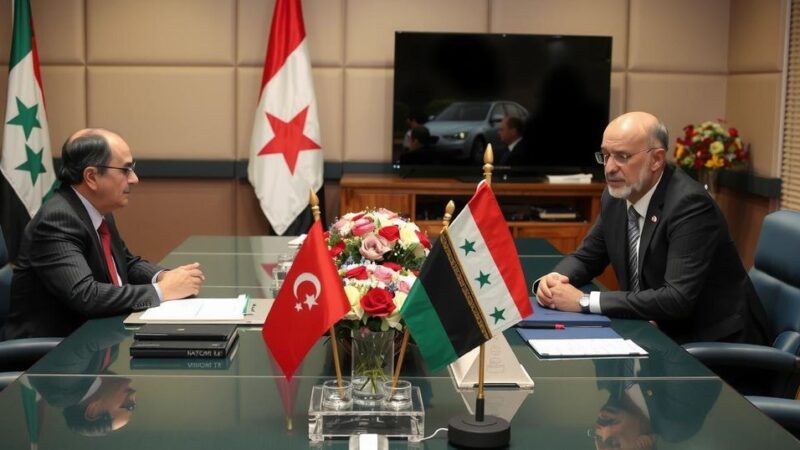China’s Foreign Minister Wang Yi is on an annual tour of Africa to enhance diplomatic and financial ties, contrasting the dwindling presence of Western nations. His visits to several African nations signify China’s commitment to economic partnerships amidst global shifts in influence, as it looks to strengthen its role in addressing regional security and expand its market opportunities in the continent’s resource-rich economies.
China’s Foreign Minister Wang Yi embarked on his annual New Year tour of Africa on Sunday, a tradition upheld for 35 years. His visit to Namibia, the Republic of Congo, Chad, and Nigeria seeks to bolster China’s influence on the resource-abundant continent amidst a notable decline in Western engagement. As the U.S. and European nations divert their focus towards internal and other geopolitical issues, China’s steady commitment to Africa becomes increasingly evident. This visit seeks to reinforce cooperation and facilitate growth within China-Africa relations.
China’s engagement with Africa contrasts sharply with the fluctuating interest shown by Western powers. As the Chinese economy grapples with a slowdown, Africa presents essential opportunities for its infrastructure firms to secure new projects and expand into markets for products such as electric vehicles and solar panels. Furthermore, the support from Africa’s substantial voting bloc in the United Nations aligns with China’s ambitions to reshape global norms, particularly regarding human rights and multilateral institutions.
Wang’s stop in the Republic of Congo, which recently assumed co-chairmanship of the Forum on China-Africa Cooperation, underscores China’s commitment to fulfilling outcomes from last year’s summit, where it pledged $51 billion in new financial assistance. Additionally, Wang’s visit to Chad reflects China’s growing role in addressing regional security issues, particularly following France’s military withdrawal amidst shifting geopolitical dynamics. Analysts suggest that China’s alignment with new military regimes in West Africa positions it not only as a reliable partner but also highlights a shifting power dynamic that Western perspectives may perceive as controversial.
This article discusses China’s strategic diplomatic engagement with Africa as illustrated by the visit of Foreign Minister Wang Yi. The backdrop consists of contemporary geopolitical shifts whereby Western nations, particularly the United States and European countries, have redirected their focus, leaving a notable gap in influence that China seeks to exploit. In recent years, African nations have increasingly turned to China for infrastructural investments and financial support amid economic challenges, creating a synergistic relationship that benefits both parties. China’s consistent diplomatic pattern marks a distinct contrast to the more sporadic engagement from the West, especially with President Biden’s limited focus on sub-Saharan Africa during his incumbency.
In conclusion, China’s sustained diplomatic focus in Africa, exemplified by Wang Yi’s New Year tour, underscores its growing influence on the continent as Western attention wanes. The strategic partnerships, financial commitments, and increased engagement in regional security reflect a key shift in global power dynamics. As the need for infrastructure projects and market expansion intensifies, Africa’s collaboration with China not only bolsters development but also reshapes the geopolitical landscape towards a more multipolar world.
Original Source: www.hindustantimes.com







